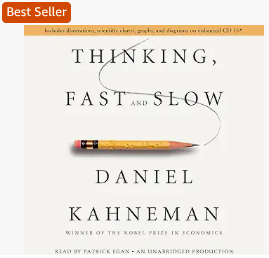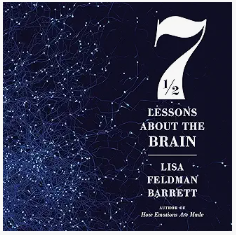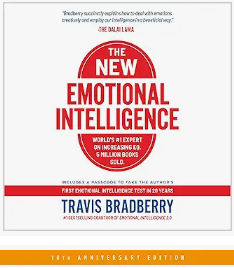
Exploring financial behavior and Economic decisions Influenced by Psychology
Psychology/Humens-Finance
Understanding Money Mindset
Explore the psychology of money and learn to transform your financial habits for a healthier relationship with finances.


Money Mindset Mastery
Explore the psychology of money and transform your financial habits for a healthier relationship with finances.
Thinking, Fast and Slow Audible Audiobook – Unabridged


Being You: A New Science of Consciousness by Anil Seth
Seven and a Half Lessons About the Brain Audible Audiobook – Unabridged
The Power of Habit: Why We Do What We Do in Life and Business Audible Audiobook – Unabridged






The New Emotional Intelligence Audible Audiobook – Unabridged


Me, but Better Audible Audiobook – Unabridged


Money Psychology
How Emotions Influence Financial Decisions and Habits
Emotions have a significant impact on financial decisions and habits. Research in behavioral finance shows that most financial choices are influenced more by feelings than by logic. For example, people often donate to charity not because of financial calculations, but because of the positive emotions and fulfillment it brings.
Different emotions affect financial behavior in specific ways:
#01) Fear and anxiety usually make people more cautious. When markets are volatile or uncertain, these emotions can lead to impulsive decisions, such as selling investments at a loss or avoiding new opportunities, even when it might not be the best choice.
#02) Excitement and confidence can encourage risk-taking. When people feel optimistic, they may invest more aggressively or believe they can outperform the market, sometimes ignoring potential risks.
#03) Emotional attachment to past experiences or self-image can cause individuals to stick with old financial habits, even if their situation has changed.
#04) Emotional biases also lead to common mistakes. Overconfidence might result in excessive trading or risk-taking.
#05) Loss aversion means people feel the pain of losing money more than the pleasure of gaining, which can cause them to avoid necessary risks.
#06) Herd mentality, driven by fear of missing out or panic, often leads people to follow the crowd—buying high and selling low.
Mood doesn’t just affect single decisions; it shapes ongoing habits.
#07) Chronic stress or anxiety about money can cause avoidance behaviors, such as ignoring bills or delaying investments.
#08) Positive emotions, on the other hand, can encourage proactive saving and investing.
To manage the influence of emotions on financial decisions, it helps to:
#09) Be aware of how emotions affect your choices.
#10) Set clear financial goals to keep decisions grounded in logic.
#11) Diversify investments and seek professional advice to reduce the impact of emotional swings.
#12) Regularly review your financial habits to ensure they fit your current situation, not just your emotional state.
Understanding how emotions drive financial decisions allows you to build better habits, make more rational choices, and improve your overall financial well-being.
How Cognitive Biases Shape Financial Decisions and Behavior
Cognitive biases are mental shortcuts or errors in judgment that can lead to irrational financial decisions. Even when we think we’re being logical, these ingrained patterns can influence our choices in subtle but powerful ways.
Common cognitive biases affecting financial behavior include:
#01) Confirmation Bias: People tend to seek out information that supports their existing beliefs and ignore evidence that contradicts them. For example, an investor might only read positive news about a stock they already like, leading to poor decisions.
#02) Anchoring Bias: This occurs when individuals fixate on the first piece of information they receive—like the initial price of a stock—and fail to adjust their thinking as new data emerges. Anchoring can result in missed opportunities or stubbornly holding onto outdated views.
#03) Overconfidence Bias: Many believe they have superior knowledge or skills, which can lead to excessive risk-taking or under-diversifying investments. Overconfidence often results in suboptimal performance and greater exposure to losses.
#04) Loss Aversion: People generally feel the pain of losses more intensely than the pleasure of gains. This bias can cause individuals to hold onto losing investments too long or avoid necessary risks, limiting growth.
#05) Herd Mentality: The tendency to follow the crowd—buying when others are buying or selling in a panic—often leads to poor timing and amplifies market swings.
#06) Endowment Effect: Individuals tend to overvalue assets simply because they own them, making it harder to sell or change investments even when it’s the rational choice.
#07) Neglect of Probability: People often ignore the actual likelihood of events, focusing instead on dramatic or rare occurrences, which can skew risk assessment and decision-making.
To counteract cognitive biases in financial decisions:
#08) Seek diverse perspectives: Consult with others or financial advisors to challenge your assumptions and reduce the impact of personal bias.
#09) Use systematic approaches: Set clear criteria and processes for evaluating investments, rather than relying on gut feelings or first impressions.
#10) Regularly review decisions: Revisit your portfolio and financial choices in light of new information, not just past beliefs.
#11) Balance human judgment with technology: Automated tools and algorithms can help identify opportunities and reduce bias, but human oversight is still essential for context and emotional understanding.
Recognizing and managing cognitive biases leads to more rational, effective financial decisions and helps build lasting financial well-being.


Healthy Mindset
Build a positive relationship with money through practical tips.
Debt Awareness
Understand debt's impact on financial well-being and mindset.
"At Truality, we are dedicated to integrity, transparency, and delivering accurate, trustworthy content to empower our users."
© 2025. All rights reserved.
"Dedicated to Helping You Build Your Financial Future". Please, feel free to subscribe to our newsletters, updates, and special offers!
2025> please be informed site was AI assisted ⚠️ Content Integrity Protected
🔒 User-Secured Validation
🔒 AI-Assisted Content Notice > Portions of this website's content have been generated or enhanced using artificial intelligence tools. While efforts are made to ensure accuracy and reliability, AI-generated content may contain errors or inaccuracies. Users are encouraged to verify information and consult professionals for advice. [TRUALITY] is committed to transparency and content integrity. Please report to us any concerns.
"Affiliate Product Page"
